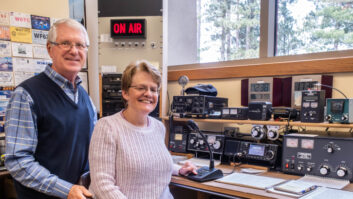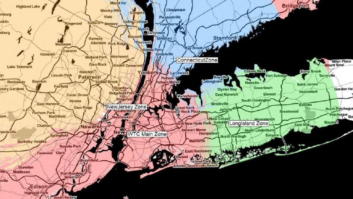The FCC maintains the agency can uphold its commitment to the public to respond to problems with public safety communications even with closures of approximately half of its Enforcement Bureau field offices and layoffs of bureau field staff by nearly two-thirds as the agency faces doing more work with less money.
We reported yesterday that NAB VP of Spectrum Policy Bob Weller believes the planned closures would leave the agency “inadequately prepared” to handle spectrum disputes.
Weller spent nine years in the FCC’s Enforcement Bureau Field Office operations. “I’ve had guns pointed at me,” he told Radio World recently. Fewer field offices and field agents could mean “disrupted emergency and AMBER alerts, unreliable police and fire communications and riskier air travel” among other “scary” possibilities, according to Weller, who worked in the bureau’s San Francisco Field Office and was also director of the Denver District Office.
The FCC has a different view. Under the proposal, “the commission would maintain its current commitment to respond to all public safety spectrum issues within one day, anywhere in the country, with the vast majority of the nation reachable within 4 to 6 hours,” according to an FCC spokesman. “If the proposal is adopted, the commission will meet its responsibilities while existing within today’s flat-line budget.”
The 4–6-hour response time frame is part of a long-standing speed of service guideline, according to a current field office agent who spoke with Radio World. “What does respond mean? A response can be to call a guy and ask if the interference is still on. That’s a BS statistic. Response doesn’t mean roll the truck” out, said this engineer. He tells Radio World “our two largest clients are the FAA and the U.S. Coast Guard” and both use equipment that is susceptible to interference from jammers.
He spent much of his time working to resolve a cellular interference case yesterday, he said, as another example of what field agents do. Some of their work involves supporting local, state and national law enforcement and public safety agencies, as well as federal agencies such as the Department of Defense, FEMA and Homeland Security.












